#Griswold v. Connecticut
Explore tagged Tumblr posts
Text
Supreme Court Bracket
Remember that this is a silly Tumblr poll, and these two things are not actually in conflict. So don't get too heated in the notes.


Public Defenders. In the case Gideon v. Wainwright the Supreme Court unanimously ruled that states are required under the Sixth Amendment to the U.S. Constitution to provide an attorney or lawyer to defendants in criminal cases who are unable to afford their own attorneys.
Birth Control. In the case Griswold v. Connecticut (1965), the Court ruled that a statute barring birth control to prevent pregnancy, also known as contraception, was unconstitutional, at least in its application to married couples, as there was an implicit right to privacy in the ''penumbras'' and ''emanations'' of other constitutional provisions. This ruling was used as precedent in Eisenstadt v. Baird (1972), which extended the right to unmarried couples, and in Roe v. Wade and Lawrence v. Texas (see below).
#xkcd#polls#tumblr polls#polls on tumblr#poll tournament#supreme court#law#us law#us politics#american politics#Gideon v. Wainwright#Griswold v. Connecticut#Public Defenders#Birth Control#0x4v0xb#Supreme Court Round 2
7 notes
·
View notes
Text
The Forgotten Shield: Understanding the Ninth Amendment’s Power and Silence
The Enigmatic Ninth Amendment: An Introduction When most Americans discuss constitutional rights, they are likely referring to the First, Second, Fourth, or even the Fifth Amendments. The Ninth Amendment, by contrast, is hardly ever mentioned in everyday civic conversation—or even in law school lectures. Yet, its inclusion in the Bill of Rights was not accidental. It was deliberate, even…
#American government#american history#Bill of Rights#bodily autonomy#civic literacy#civil liberties#constitutional law#constitutional rights#constitutional scholars#digital privacy#forgotten amendment#Griswold v Connecticut#James Madison#JT Santana#jtwb#jtwb768#judicial interpretation#judicial restraint#legal education#legal philosophy#legal theory#natural rights#Ninth Amendment#originalism#personal liberty#privacy rights#scotus#unenumerated rights#us constitution
1 note
·
View note
Text
Women's Not So Distant History
This #WomensHistoryMonth, let's not forget how many of our rights were only won in recent decades, and weren’t acquired by asking nicely and waiting. We need to fight for our rights. Here's are a few examples:

📍 Before 1974's Fair Credit Opportunity Act made it illegal for financial institutions to discriminate against applicants' gender, banks could refuse women a credit card. Women won the right to open a bank account in the 1960s, but many banks still refused without a husband’s signature. This allowed men to continue to have control over women’s bank accounts. Unmarried women were often refused service by financial institutions entirely.
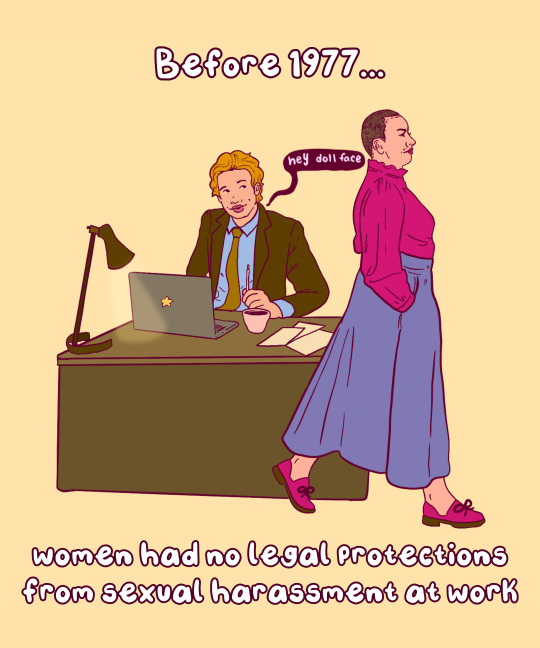
📍 Before 1977, sexual harassment was not considered a legal offense. That changed when a woman brought her boss to court after she refused his sexual advances and was fired. The court stated that her termination violated the 1974 Civil Rights Act, which made employment discrimination illegal.⚖️
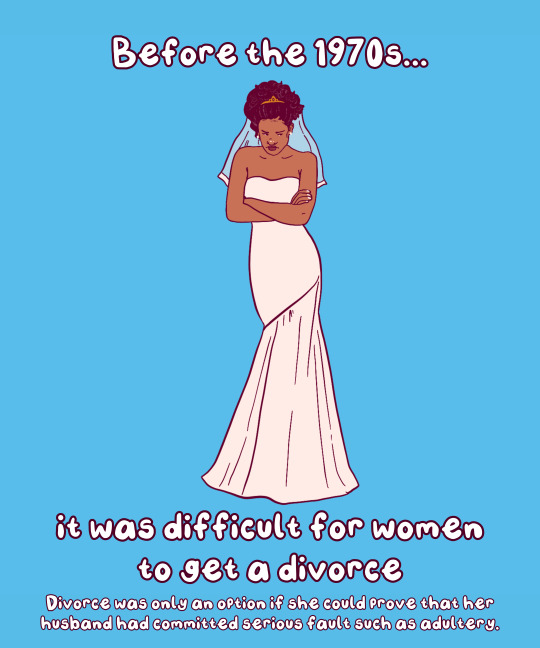
📍 In 1969, California became the first state to pass legislation to allow no-fault divorce. Before then, divorce could only be obtained if a woman could prove that her husband had committed serious faults such as adultery. 💍By 1977, nine states had adopted no-fault divorce laws, and by late 1983, every state had but two. The last, New York, adopted a law in 2010.
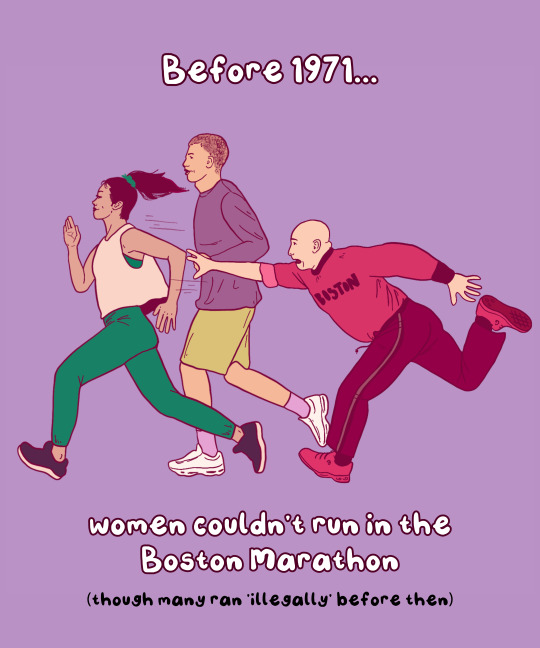
📍In 1967, Kathrine Switzer, entered the Boston Marathon under the name "K.V. Switzer." At the time, the Amateur Athletics Union didn't allow women. Once discovered, staff tried to remove Switzer from the race, but she finished. AAU did not formally accept women until fall 1971.

📍 In 1972, Lillian Garland, a receptionist at a California bank, went on unpaid leave to have a baby and when she returned, her position was filled. Her lawsuit led to 1978's Pregnancy Discrimination Act, which found that discriminating against pregnant people is unlawful
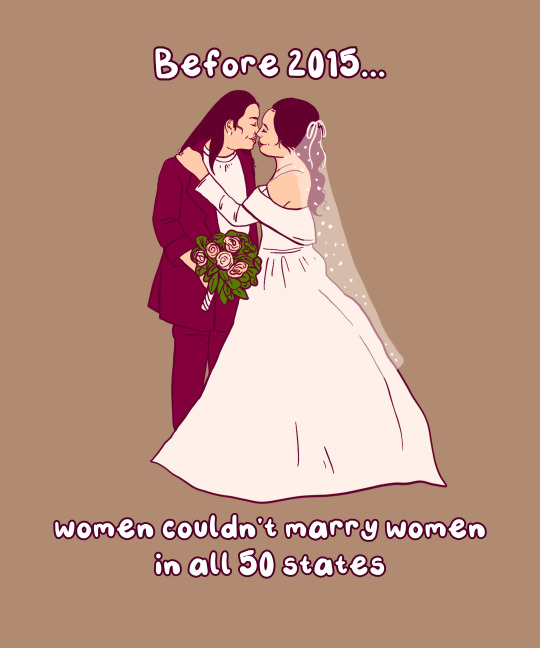
📍 It wasn’t until 2016 that gay marriage was legal in all 50 states. Previously, laws varied by state, and while many states allowed for civil unions for same-sex couples, it created a separate but equal standard. In 2008, California was the first state to achieve marriage equality, only to reverse that right following a ballot initiative later that year.

📍In 2018, Utah and Idaho were the last two states that lacked clear legislation protecting chest or breast feeding parents from obscenity laws. At the time, an Idaho congressman complained women would, "whip it out and do it anywhere,"
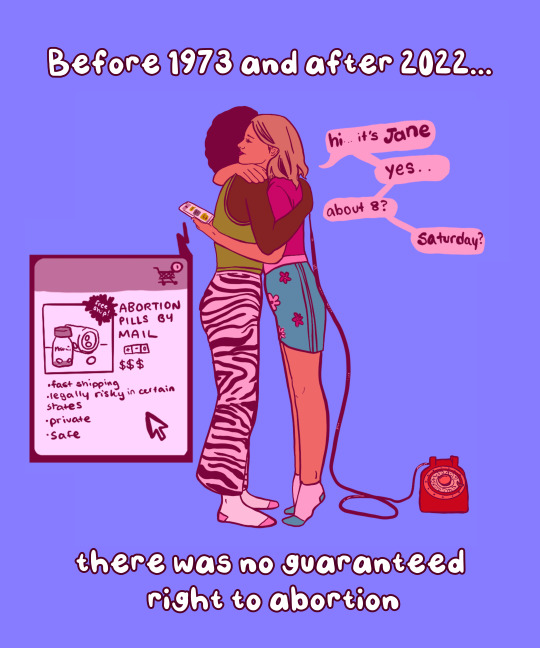
📍 In 1973, the Supreme Court affirmed the right to safe legal abortion in Roe v. Wade. At the time of the decision, nearly all states outlawed abortion with few exceptions. In 1965, illegal abortions made up one-sixth of all pregnancy- and childbirth-related deaths. Unfortunately after years of abortion restrictions and bans, the Supreme Court overturned Roe in 2022. Since then, 14 states have fully banned care, and another 7 severely restrict it – leaving most of the south and midwest without access.
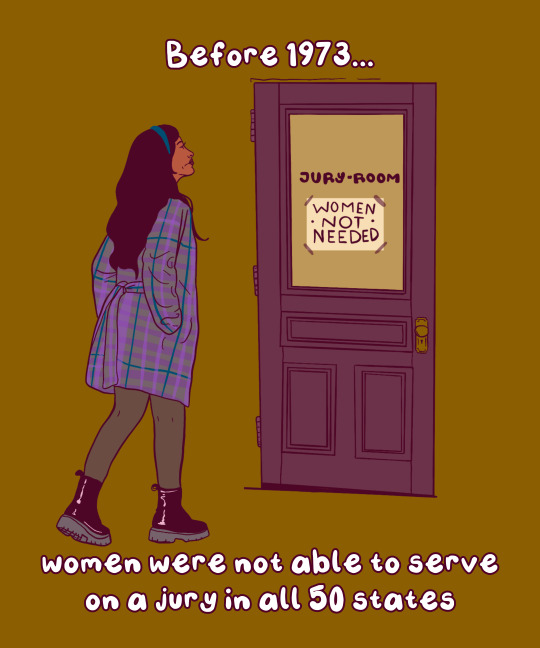
📍 Before 1973, women were not able to serve on a jury in all 50 states. However, this varied by state: Utah was the first state to allow women to serve jury duty in 1898. Though, by 1927, only 19 states allowed women to serve jury duty. The Civil Rights Act of 1957 gave women the right to serve on federal juries, though it wasn't until 1973 that all 50 states passed similar legislation

📍 Before 1988, women were unable to get a business loan on their own. The Women's Business Ownership Act of 1988 allowed women to get loans without a male co-signer and removed other barriers to women in business. The number of women-owned businesses increased by 31 times in the last four decades.
Free download
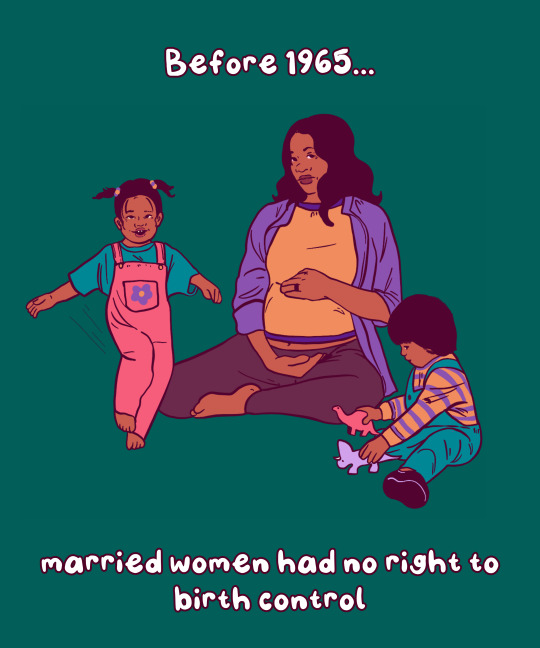
📍 Before 1965, married women had no right to birth control. In Griswold v. Connecticut (1965), the Supreme Court ruled that banning the use of contraceptives violated the right to marital privacy.
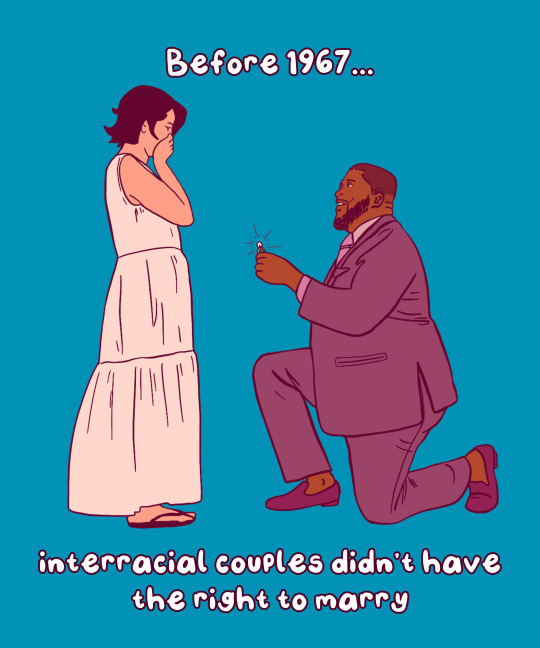
📍 Before 1967, interracial couples didn’t have the right to marry. In Loving v. Virginia, the Supreme Court found that anti-miscegenation laws were unconstitutional. In 2000, Alabama was the last State to remove its anti-miscegenation laws from the books.

📍 Before 1972, unmarried women didn’t have the right to birth control. While married couples gained the right in 1967, it wasn’t until Eisenstadt v. Baird seven years later, that the Supreme Court affirmed the right to contraception for unmarried people.
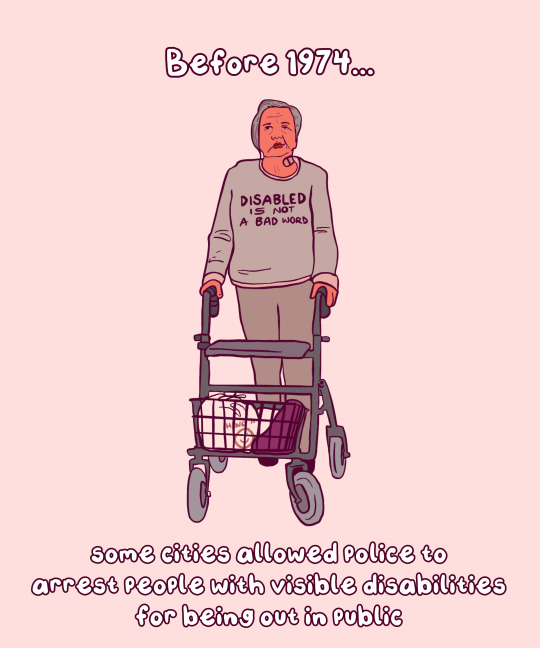
📍 In 1974, the last “Ugly Laws” were repealed in Chicago. “Ugly Laws” allowed the police to arrest and jail people with visible disabilities for being seen in public. People charged with ugly laws were either charged a fine or held in jail. ‘Ugly Laws’ were a part of the late 19th century Victorian Era poor laws.

📍 In 1976, Hawaii was the last state to lift requirements that a woman take her husband’s last name. If a woman didn’t take her husband’s last name, employers could refuse to issue her payroll and she could be barred from voting.

📍 It wasn’t until 1993 that marital assault became a crime in all 50 states. Historically, intercourse within marriage was regarded as a “right” of spouses. Before 1974, in all fifty U.S. states, men had legal immunity for assaults their wives. Oklahoma and North Carolina were the last to change the law in 1993.

📍 In 1990, the Americans with Disability Act (ADA) – most comprehensive disability rights legislation in U.S. history – was passed. The ADA protected disabled people from employment discrimination. Previously, an employer could refuse to hire someone just because of their disability.

📍 Before 1993, women weren’t allowed to wear pants on the Senate floor. That changed when Sen. Moseley Braun (D-IL), & Sen. Barbara Mikulski (D-MD) wore trousers - shocking the male-dominated Senate. Their fashion statement ultimately led to the dress code being clarified to allow women to wear pants.

📍 Emergency contraception (Plan B) wasn't approved by the FDA until 1998. While many can get emergency contraception at their local drugstore, back then it required a prescription. In 2013, the FDA removed age limits & allowed retailers to stock it directly on the shelf (although many don’t).
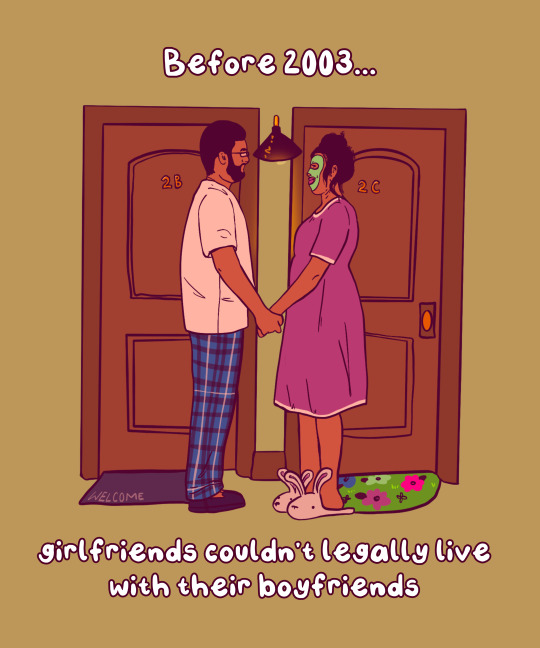
📍 In Lawrence v. Texas (2003), the Supreme Court ruled that anti-cohabitation laws were unconstitutional. Sometimes referred to as the ‘'Living in Sin' statute, anti-cohabitation laws criminalize living with a partner if the couple is unmarried. Today, Mississippi still has laws on its books against cohabitation.
#art#feminism#women's history#women's history month#iwd2024#international women's day#herstory#educational#graphics#history#70s#80s#rights#women's rights#human rights
18K notes
·
View notes
Text
Filosofa's Fury
It is 1:00 a.m. where I live. One of the three human family members, daughter Chris, is fast asleep, for she gets up at 5:00 a.m. every morning to go to her job. All four furry family members are asleep in their respective happy places (one on my lap). And the other human family member (besides myself, that is) is chatting online with her friends. Therefore, it would be disruptive, to say the…

View On WordPress
0 notes
Text
On this Election Day evening, it occurred to me that, based on this post and other earlier confirmations, these kids got serious about one another right around the time gay marriage became legal throughout the United States (Obergefell v. Hodges). The Supreme Court established the right of marriage between any two people, and the Supreme Court can take it away, especially this Supreme Court.
In Justice Thomas' concurrence in the Dobbs decision overturning Roe v. Wade, he said the court should consider the substantive due process rulings of Griswold, Lawrence and Obergefell.
Griswold legalized contraception. (1965)
Lawrence legalized gay sex. (2003)
Obergefell legalized gay marriage (2015
Let's note that Justice Thomas did not cite the Loving v. Virginia, another substantive due process rulings, the one that legalized interracial marriages like Justice Thomas's.
Roe got overturned because Trump got to put three radical justices on the Supreme Court. Obergefell can be next. Lawrence can be next. Griswold can be next. Loving can be next.
When Preath are asking us to vote, it's because they are on the ballot. Their legal standing to live, laugh and love together is on the ballot. I hope we didn't disappoint them.
can't believe we finally got the confirm on the anniversary, it only took 9 years

#tobin heath#christen press#loving v virginia#obergefell v. hodges#lawrence v. texas#griswold v connecticut#preath#substantive due process#decision 2024
78 notes
·
View notes
Text
Well, here it comes, a filing at the Republican-controlled Sixth US Circuit Court of Appeals that could lead to the overturn of the rights to same-sex marriage, birth control, even the right to have same-sexy-sextimes in the privacy of one’s own home, courtesy of Apostolic Christian Kentucky court clerk Kim Davis and her designated-hate-group law firm, Liberty Counsel.
Yes, it’s THAT lady again, the one the hair who’s been pitching one long legal fit since 2015, starting when she refused to sign marriage certificates for gay couples after Obergefell v. Hodges made same-sex marriage the law of the land, moaning that it would violate her right to religious expression to have her Godly Christian signature on such sinful paperwork.
The couples sued her for being a flagrant asshole who denied them their rights, and a jury agreed with them. Davis appealed to the Supreme Court, back in the saner days of old (2020 and before), they didn’t want to hear it.
Nevertheless, Justice Clarence “RV” Thomas took the opportunity to write a whole unsolicited statement about how the victim here wasn’t nice couples in love trying to get married like they were legally allowed to do, but poor Kim Davis, because now everybody thinks she’s a bigot instead of decent, good, and honorable, and that makes her sad. How dare Obergefell have not considered the right of Christian moral scolds to butt into everybody’s private life and make scenes, the way God intended?
[ ]
So now Davis and Liberty Counsel have an in, using Thomas’s statement to take their legal spanking to the 6th Circuit as being UGH SO UNFAIR to Davis as an oppressed bigot-American. Also while the 6th Circuit is at it, Davis thinks they should “reconsider all of th[e] Court’s substantive due process precedents, including Griswold [v. Connecticut], Lawrence [v. Texas], and Obergefell”, maybe the 6th Circuit could have a talk with the manager?
[ ]
But guffaw, Liberty Counsel is never happy! Not for nothing the Southern Poverty Law Center designates them as a hate group! Their lawyers Mat (one ‘T’) Staver and Matt Barber have opined many times that gay sex is so ew yuck icky that we should all have an entire civil war about it. In 2019 Liberty Counsel was publicly mad that gay people were included in the federal Justice for Victims of Lynching Act, lest you think they aren’t deadly serious about wanting to kill people.
That’s a goal that also tops on Project 2025’s wish list, that plus labeling content with LGBTQ people in it as pornography, making “pornographers” register as sex offenders, and that sex offenders should get the death penalty. And like Davis, Project 2025 would also like to throw out the Comstock Act and have the FBI spend their time searching people’s mail for suspected “abortifacients.”
51 notes
·
View notes
Text
The overturning of Roe v. Wade and this term’s Supreme Court abortion cases have understandably kept attention riveted on abortion. But while the abortion battle rages on, people are losing sight of the second front of the war to secure women’s reproductive autonomy: birth control.
As state abortion bans proliferate in the post-Roe era, the use of reliable birth control to prevent unintended pregnancies is more crucial than ever. Moreover, defenders of reproductive rights now must guard against an additional challenge—the offensive far-right conservatives are mounting against contraception.
Unplanned pregnancy is more common than most people realize. According to the latest data from the Centers for Disease Control (CDC), 42% of all pregnancies are unintended, meaning that the pregnancy was either unwanted or seriously mistimed.
While abortion is an important line of defense in preventing unplanned parenthood, it should be a last resort. The easiest way to prevent unplanned parenthood is to prevent an unintended pregnancy from occurring in the first place.
There are compelling reasons to support the use of effective birth control. A long and robust economic literature has shown that improving access to contraception reduces maternal morbidity and mortality. It also leads to healthier babies, less child poverty, better living circumstances for children, and improved educational and career opportunities for women.
In addition, birth control offers the most politically unifying approach to secure women’s reproductive autonomy. While just over one-third of the U.S. public doesn’t think abortion should be legal under any or most circumstances, nearly 9 in 10 approve the use of contraception, including 86% of Republicans. Birth control is also a more effective way to reduce abortion incidence than current state-level abortion bans which so far have not translated into fewer abortions nationwide. But if unplanned pregnancies essentially disappeared, there would be vanishingly few abortions.
And yet, despite birth control’s benefits and broad popularity, some conservatives are now targeting contraception.
Supreme Court Justice Clarence Thomas opened the door to these attacks when he argued that the same legal reasoning used to overturn Roe implies that “in future cases�� the Court should “reconsider” Griswold v. Connecticut, the landmark case that established the Constitutional right to contraception in 1965. Since then, legislation to ban or restrict access to certain forms of contraception has already been discussed or proposed in Arkansas, Idaho, Louisiana, Michigan, and Missouri.
The Heritage Foundation as part of its Project 2025 initiative has called for a potential future Trump administration to restrict access to certain types of birth control. When asked about the topic in a recent TV interview, former President Trump said he was “looking at” policies that would restrict access, adding that “some states are going to have different policy than others.” He later walked back those comments, but many of Trump’s actions as president, including his decision to halve the patient capacity of the Title X program that provides affordable birth control and related services, foreshadow what may be his real intentions.
Senator Chuck Schumer recently led an effort to codify the right to contraception nationwide. All but two Senate Republicans present voted against the measure.
Central to Republicans’ attacks against contraception have been efforts by anti-abortion religious groups to falsely equate certain forms of birth control with abortion. That position is contrary to the consensus among medical experts that contraception, unlike abortion, does not terminate pregnancy and instead prevents pregnancy from occurring in the first place. The American College of Obstetricians and Gynecologists, for example, has stated: “None of the FDA-approved contraceptive methods are abortifacients because they do not interfere with a pregnancy and are not effective after a fertilized egg has implanted successfully in the uterus.”
Amid far-right attacks, defenders of women’s reproductive autonomy should focus more attention on effective contraception.
As a safe and virtually foolproof form of birth control, the surging popularity of long-acting reversible contraception (LARC) which includes IUDs and implants is especially promising. For a typical couple using a condom, the risk of pregnancy within five years is 63%. For those relying on the pill, it is 38%. With a LARC, it is less than 4%. LARCs change the default so that users can “set it and forget it” without losing sleep over concerns about getting pregnant.
Many women are taking notice. The share of women using LARCs increased sevenfold between 2002 and 2018. LARCs are now the third most common contraceptive method used by women after sterilization and the pill. Early evidence suggests more women and men are seeking out effective contraception including LARCs in response to the overturning of Roe v. Wade.
Beyond the increased use of LARCs, the first-ever over-the-counter birth control pill hit the shelves of major drug stores earlier this year. That is important because nearly one-third of women using the pill say they have missed taking their dosage because they were unable to get their next supply in time.
But what more could be done?
Primary care physicians should screen all women of reproductive age for their pregnancy intentions to encourage patients who don’t want to get pregnant to focus on the risks of sex and their contraceptive options for reducing them. We also need to ensure all healthcare providers, not just doctors, are trained in the use of LARCs, have them on hand, and can provide same day insertion. Where these approaches have been tried, unintended pregnancy and abortion rates have both declined dramatically.
In addition, more funding for Title X is needed. One rigorous study has shown that eliminating cost sharing for low-income patients seeking birth control would significantly reduce unintended pregnancies and abortions and save more than one billion dollars in Medicaid expenses in the first year alone.
The overturning of Roe v. Wade was a Pandora’s box that unleashed an invigorated assault on women’s fundamental freedoms. As the onslaught intensifies, defenders of women’s reproductive autonomy must fight back to fortify the first and strongest line of defense in protecting a woman’s right to choose if and when to seek a pregnancy.
23 notes
·
View notes
Note
I worry a lot about how damaging the popular social media “living in tune with your hormones” trends could be. Like people living their whole life revolved around their period (because they’re usually selling you something, or claiming to possess hidden truths) it makes me feel crazy because I’m like….all power to people who have debilitating periods and I’m so sorry they experience that, but I think most of us menstruate without it totally derailing our lives, and I don’t want men to have reasons to believe that periods rule us. How do we balance people seeking medical help when they need it for hormone/period problems, and not acting like we are all powerless to the forces of our uteruses? Also many many of my friends have gone off of birth control because of what they see on social media. I now feel like they think I’m a bit stupid for buying into The System and still having my hormonal IUD.
i was just discussing this with a mutual but in the us, access to birth control (like the pill, but also including condoms in some states) was only made legal for single people in 1972... demonizing it, our hormones, and whatnot is absolutely not the way to go about improving access to reproductive health. i feel very scared about this tbh because this is part of a coordinated plan by evangelicals and republicans to make contraception and family planning methods like iuds, the pill, and more illegal. clarence thomas WANTS people to challenge griswold v connecticut, which is what gave married couples the right to contraception. conservatives are ACTIVELY, right now, gunning to get rid of accessibility to contraception and family planning in opposition to feminism and personal freedom. this shit is real! people on tiktok might think they're just "questioning" and "exercising their personal freedom" without understanding the larger picture. this isn't just some scary possibility, it is a goal that republicans have been working towards since the 70s.
15 notes
·
View notes
Text
SCOTUS Decisions
Griswold v. Connecticut (1965) and Eisenstadt v. Baird (1972) legalized contraception
Roe v Wade (1973) legalized abortion
Lawrence v. Texas (2003) legalized gay sex
Obergefell v. Hodges (2015) legalized same sex marriage
SCOTUS has done away with the right to an abortion, and Thomas has said they are going to do the same with the others too. Roe fell because people didn't vote for Hillary, which allowed trump to put three justices on the court. The next president will probably get to put at least two justices on the court, possibly more. It boggles my mind people are making the same mistake by refusing to vote for Harris.
7 notes
·
View notes
Text
Susan Rinkunas at Jezebel:
It’s been a pretty relentless news cycle these past few months and unfortunately, Kim Davis has decided to come crawling back into the headlines to make it worse.
The former Kentucky county clerk—who became infamous for denying marriage licenses to gay couples after the Supreme Court’s marriage equality ruling in Obergefell v. Hodges—is now arguing in federal court that Obergefell should be overturned, for the same reasons the high court shredded Roe v. Wade in 2022. Davis is appealing a jury’s 2023 decision that she should have to pay $100,000 to a gay couple to whom she denied a marriage license. Davis argued that granting a license to David Ermold and David Moore in 2015 violated her religious beliefs; a deputy clerk eventually gave them a license. (The case is called Ermold v. Davis.) In a brief to the Sixth Circuit Court of Appeals, her lawyers argue that “Obergefell should be overturned for the same reasons articulated by the court in Dobbs”—mainly that it “was wrong when it was decided and it is wrong today because it was based entirely on the ‘legal fiction’ of substantive due process, which lacks any basis in the Constitution.”
This is a regurgitation of Justice Clarence Thomas’ concurrence in the Dobbs case that overturned Roe in which he argued that the court should overrule not only marriage equality but also the right to same-sex intimacy (Lawrence v. Texas, 2003) and the right for married couples to use birth control (Griswold v. Connecticut, 1965). Thomas called these substantive due process decisions “demonstrably erroneous.” While no other Justice joined that writing, Justices Thomas, Samuel Alito, and John Roberts all dissented in Obergefell, which was a 5-4 ruling. It’s well within the realm of possibility that, on this 6-3 court, there are four votes to hear a marriage equality case and five votes to overturn Obergefell. (Davis’ brief says her appeal demonstrates the need to “reconsider” Lawrence and Griswold as well.)
[...] Davis is being represented by Florida-based Liberty Counsel, a firm that opposes the state’s abortion ballot measure. The group said that, if it passed, they would ask the state Supreme Court to declare fetal personhood or a total abortion ban. Liberty Counsel chairman Mat Staver told Bloomberg Law in April: “We have an open door to go back and establish personhood.” He added, “The Florida Supreme Court isn’t out of the picture yet.” Staver told Bloomberg that if the tactic works in Florida, it could be used as a strategy across the country as nearly all state constitutions have “right to life” language. (Staver has represented Davis since at least 2015, when he compared her to a Jewish person living in Nazi Germany.)
Infamous homophobic Rowan County, Kentucky Clerk Kim Davis is teeing up a case for the MAGA Majority on SCOTUS to hear the Ermold v. Davis case that seeks to overturn not just Obergefell v. Hodges, but also Lawrence v. Texas and Griswold v. Connecticut.
#Kim Davis#Obergefell v. Hodges#SCOTUS#Marriage Equality#LGBTQ+#Anti LGBTQ+ Extremism#Ermold v. Davis#Lawrence v. Texas#Griswold v. Connecticut#Mat Staver#Liberty Counsel#6th Circuit Court
14 notes
·
View notes
Text
"Birth control" probably refers to Griswold v Connecticut, the Supreme Court ruling that made birth control legal in the United States, which happened in 1965, and then it's immediately followed by Ho Chi Minh, probably referring to his death in 1969. My man just skipped half of the sixties. The notoriously happenin' decade. Skipped right over 1968.
7 notes
·
View notes
Text
I’ve said this before but
I deeply hate how relevant learning about Griswold v. Connecticut and the comstock act in my high school government class has been in my life
#us politics#yeah so a Texas judge just ordered NY drs to stop sending abortion pills through the mail
2 notes
·
View notes
Text
Driven by a traumatic past and deeply rooted in Victorian moral panic, Anthony Comstock dedicated his life to eradicating “obscenity” and restricting women’s access to contraception. He became a staunch advocate for moral purity and sought to eradicate obscenity, which included romance novels, medical information, and devices, believing all of it to be a threat to his firmly held Christian values.
The culmination of Anthony Comstock’s efforts was the passage of the Comstock Act in 1873. This Act criminalized the distribution of “obscene materials,” including contraceptive information and devices. Its aim was to “protect” women by limiting their access to what Anthony Comstock deemed indecent.
The Comstock Act’s criminalization of contraception had profound implications for women’s reproductive rights. Access to information about contraception was severely restricted, limiting women’s ability to make informed choices about their own bodies and reproductive health. This oppressive restriction on women’s rights persisted for decades, reinforcing traditional gender norms and perpetuating extensive gender inequality. A series of court cases eventually overturned much of the Comstock Act. Most famously Griswold v. Connecticut in 1965, which legalized contraception for married couples.
Despite Anthony Comstock’s best efforts to suppress information about contraception, there were people who bravely resisted these oppressions. On this podcast episode we elevate the stories of individuals who fought against this puritanical campaign, showcasing their resilience and determination. These brave souls worked tirelessly to challenge the restrictive laws and advocate for reproductive rights and sexual freedom. And although many of them were not successful, their stories of resistance continue to inspire advocates today.
Through this historical lens, we gain a deeper understanding of the shared history between the criminalization of sex work and the criminalization of reproductive justice. Both movements seek to control and regulate women’s bodies and choices. The fight for sex worker rights has always been intricately linked to the broader struggle for access to reproductive health care and bodily autonomy.
In our modern society, where the fight for reproductive rights continues, it is essential to recognize these lessons from history. The legacy of Anthony Comstock serves as a stark reminder of the dangers of moral panic and the suppression of personal freedoms. By understanding the past, we can better comprehend the challenges faced by those who fought against oppressive forces, and draw inspiration from their resilience.
7 notes
·
View notes
Text
Popular Court Cases that Improved Women's Rights
Roe v. Wade (1973)
One of the most significant cases in the history of women's rights is Roe v. Wade (1973), where the U.S. Supreme Court recognized a woman's constitutional right to choose to have an abortion (Roe v. Wade, 410 U.S. 113, 1973). This landmark decision invalidated many state laws restricting abortion and established a legal precedent for reproductive autonomy. The case centered around "Jane Roe," a pseudonym for Norma McCorvey, who challenged Texas laws criminalizing most abortions. The Court held that these laws violated the right to privacy protected by the Fourteenth Amendment (Greenhouse, 2011). Roe v. Wade remains a cornerstone of reproductive rights jurisprudence, despite ongoing challenges and debates.
Griswold v. Connecticut (1965)
Before Roe v. Wade, the Supreme Court's decision in Griswold v. Connecticut (1965) laid the groundwork for reproductive rights by recognizing the right to privacy in marital relations (Griswold v. Connecticut, 381 U.S. 479, 1965). The Court struck down a Connecticut law that prohibited the use of contraceptives, even by married couples, ruling that it violated the "right to marital privacy" (Eisenstadt v. Baird, 1972). This case was instrumental in establishing privacy rights that later cases would expand to include broader reproductive freedoms.
Eisenstadt v. Baird (1972)
Following Griswold, Eisenstadt v. Baird (1972) extended the right to use contraceptives to unmarried individuals, emphasizing that the right of privacy must extend to individuals, not just married couples (Eisenstadt v. Baird, 405 U.S. 438, 1972). This decision marked a significant step in recognizing women's autonomy over their reproductive choices, irrespective of marital status, thus broadening the scope of reproductive rights established in Griswold.
Brown v. Board of Education (1954)
While not exclusively a women's rights case, Brown v. Board of Education (1954) played a crucial role in the broader civil rights movement, which significantly impacted women's rights (Brown v. Board of Education, 347 U.S. 483, 1954). The decision to desegregate schools provided a foundation for challenging discriminatory practices against women and other marginalized groups, thereby contributing to the legal and social environment that supported women's equality.
Reed v. Reed (1971)
Reed v. Reed (1971) was a landmark Supreme Court case that addressed gender discrimination directly (Reed v. Reed, 404 U.S. 71, 1971). The case involved a dispute over who should administer the estate of their deceased son, with Idaho law preferring men over women. The Supreme Court ruled that the law's preference for men over women was unconstitutional under the Equal Protection Clause of the Fourteenth Amendment. This decision was the first time the Court struck down a law for discriminating based on gender, setting a precedent for future gender discrimination cases (Babcock, 1975).
United States v. Virginia (1996)
In United States v. Virginia (1996), the Supreme Court ruled that the Virginia Military Institute's male-only admissions policy violated the Equal Protection Clause of the Fourteenth Amendment (United States v. Virginia, 518 U.S. 515, 1996). The Court held that gender-based classifications must demonstrate an "exceedingly persuasive justification" and that VMI's policy did not meet this standard. This decision reinforced the principle that gender discrimination requires rigorous judicial scrutiny and must serve important governmental objectives (Ginsburg, 1997).
Meritor Savings Bank v. Vinson (1986)
Meritor Savings Bank v. Vinson (1986) was a critical case in the development of workplace rights for women, specifically addressing sexual harassment (Meritor Savings Bank v. Vinson, 477 U.S. 57, 1986). The Supreme Court recognized that sexual harassment constitutes a violation of Title VII of the Civil Rights Act of 1964, which prohibits employment discrimination based on sex. This case established the legal framework for understanding and addressing sexual harassment in the workplace, significantly advancing women's rights in employment (MacKinnon, 1979).
Loving v. Virginia (1967)
While primarily known for ending bans on interracial marriage, Loving v. Virginia (1967) also had implications for women's rights by affirming the right to marry and choose one's partner, which is a fundamental aspect of personal autonomy (Loving v. Virginia, 388 U.S. 1, 1967). This case emphasized the importance of individual choice in intimate relationships, a principle that underlies many aspects of gender equality and women's rights (Koppleman, 2002).
Obergefell v. Hodges (2015)
Obergefell v. Hodges (2015) legalized same-sex marriage across the United States and, in doing so, reinforced the principles of equality and personal autonomy that underpin many women's rights cases (Obergefell v. Hodges, 576 U.S. 644, 2015). This decision highlighted the broader struggle for civil rights and the interconnectedness of various movements advocating for equality.
2 notes
·
View notes
Text
So back in 2020 I started law school. I moved back to Philadelphia in the midst of a global pandemic (after moving back to my parents house for the first few months of COVID) and was going a little stir crazy living all alone. So within the first month of school, I made a thread of screen grabs from IASIP that, in some way or another, correlate with American court decisions. In honor of season 16 correlating with me studying for the bar exam, here is that SAME tread three years later.
(Disclaimer: these are merely observations I made, this should not be construed as legal advice in any compacity).
Dougherty v. Salt, 125 N.E 94 (1919).

Lucy v. Zehmer, 84 S.E.2d 516 (1954).


Obergefell v. Hodges, 576 U.S. 644 (2015).

Lawrence v. Texas, 539 U.S. 558 (2003).


Roe v. Wade, 410 U.S. 113 (1973). (This was made before Dobbs, and honestly this is more fitting for that terrible decision unfortunately).

Michael H. v Gerald D., 491 U.S. 110 (1989).

ACLU v. DOJ, 681 F.3d 61 (2012).

Stewart v. Mitts, 539 Pa. 596 (1995).

Griswold v. Connecticut, 381 U.S. 479 (1965).

Palmore v. Sidoti, 466 U.S. 429 (1984).

City of Philadelphia v. New Jersey, 437 U.S. 617 (1978).


Babb v. Wilkie, 140 S.Ct. 1168 (2020).

Hall v. McBryde, 919 P. 2d 910 (1996).

Slayton v. McDonald, 690 So. 2d 914 (1997).

Nelson v. Carroll, 355 Md. 937 (1999).

Parrot v. Wells Fargo & Co., 82 U.S. 524 (1872).
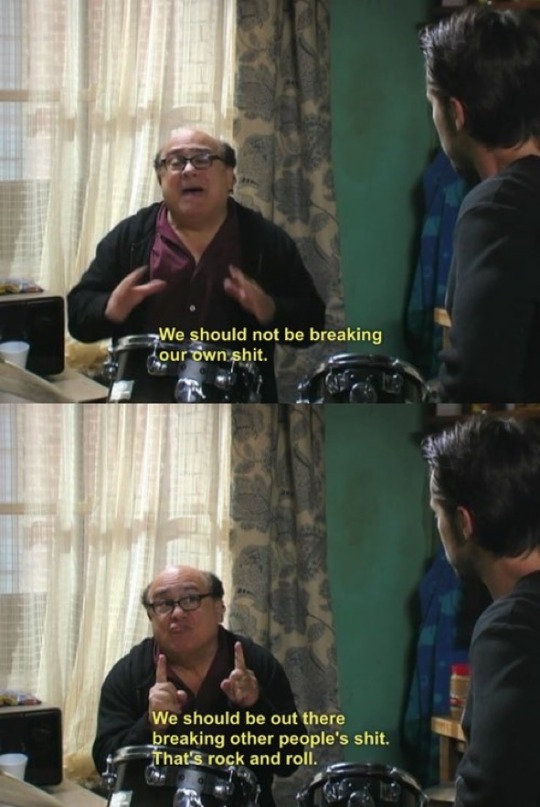
Myhaver v. Knutson, 189 Ariz. 286 (1997).

Arce v. U-Pull-It Auto Parts, Inc., No. 06-5593 E.D. Pa. (Unpublished 2008).

Cervelli v. Graves, 661 P.2d 1032 (1983).

Webb v. McGowin, 27 Ala. App. 82 (1935).

And if for whatever reason you decide you want to see the original thread, thats here: https://twitter.com/877KashNow/status/1305998850021232640?s=20
#always sunny#iasip#dennis reynolds#dee reynolds#charlie kelly#mac mcdonald#mac iasip#it’s always sunny#it’s always sunny in philadelphia#bird law
9 notes
·
View notes
Text
Another good reason to vote for the Democrat in the general if you're in the US.
Like the 2025 plan, the GOP wants to use the Comstock Act to repress birth control and use it as a legal wedge to get under Griswold v Connecticut.
I understand that Biden is supporting a genocide but any Republican will be worse. If you want to understand Biden and every Third Way Democrat that is in the pro-genocide camp you need to vote in primaries and go out and demonstrate (as well as have support and solidarity with the people going farther). Look to the Atlanta activists resisting Cop City for a roadmap on what you, personally, can do.
Reducing harm is an everyday job and not engaging won't fix anything. Especially when standing in the sidelines will put you in a genocide at home rather than protesting one abroad. There are no good choices, only better and worse actions to take.
3 notes
·
View notes